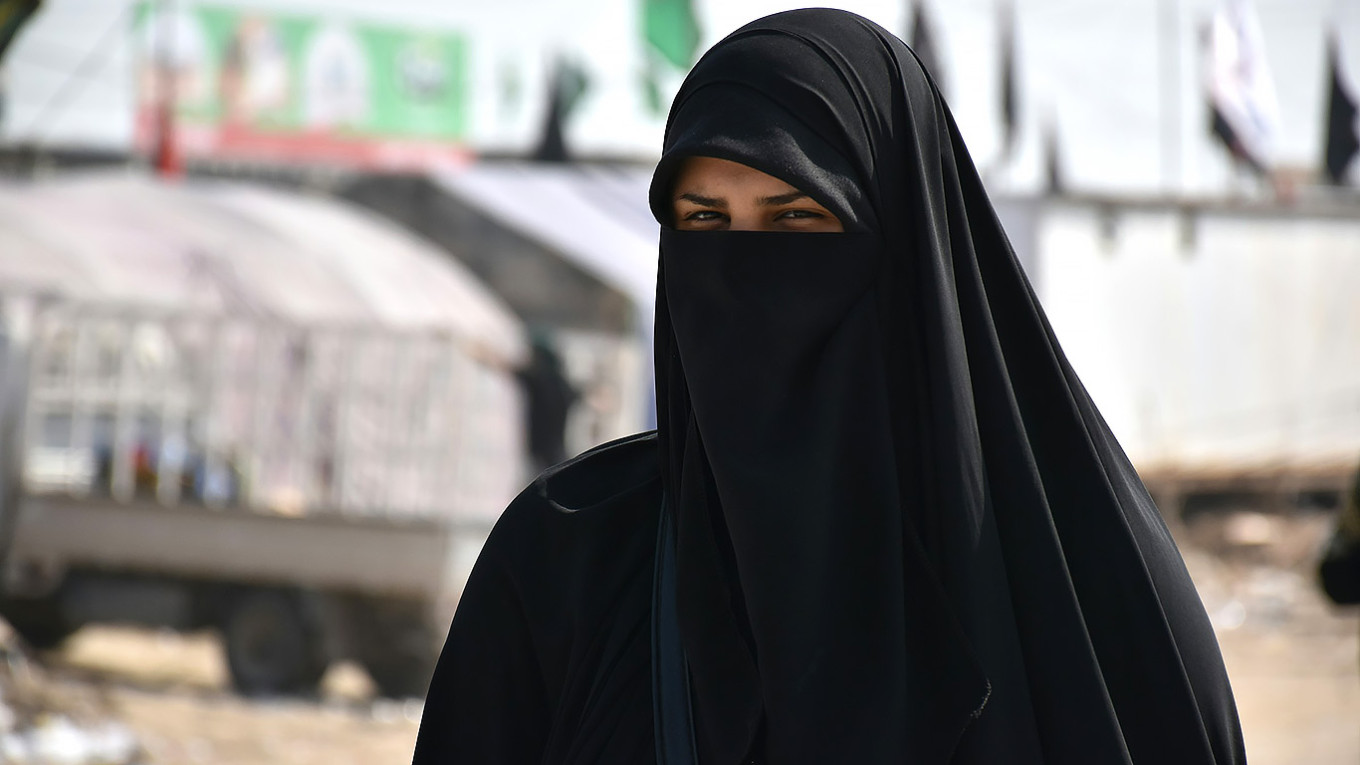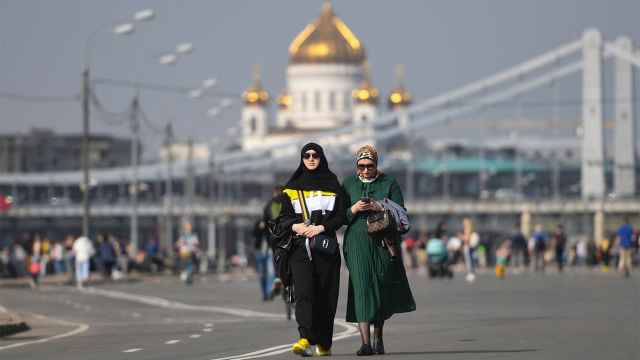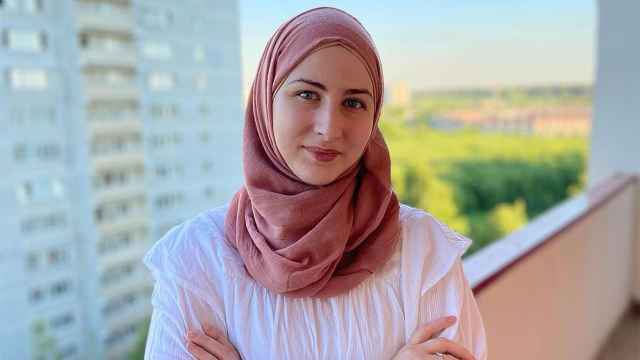A senior Muslim cleric in Russia’s republic of Dagestan announced Wednesday that the niqab, a full-face veil worn by some Muslim women, would be temporarily banned as part of safety measures following deadly attacks last month.
Gunmen killed 22 people in coordinated attacks on two churches, two synagogues and a police checkpoint in two cities in the North Caucasus republic of Dagestan on June 23.
Reports that one of the gunmen had planned to escape by wearing a niqab have triggered a high-profile debate on prohibiting the full-length garment in the region.
“The mufti announces a temporary ban on wearing niqabs until the identified threats are eliminated,” Dagestan’s deputy mufti Abdullah Salimov said in a statement.
He said the ban was issued based on a recommendation from Dagestan’s administration regarding “reports on the existing threat to the security of the population of the republic.”
Dagestan’s senior Muslim cleric Akhmed Abdulayev had vowed to issue a religious decree, or fatwa, to ban the wearing of the niqab. He said the ruling would be in effect until “peace and calm were restored to the region” and urged men who did not want their wives’ faces seen in public to keep them at home.
Russia has had a conflicted relationship with allowing Muslim girls and women to wear headscarves even before the June 23 attacks.
Many Muslim women cover their heads in public with veils as a sign of modesty, but some critics see it as a sign of female oppression.
An estimated 20 million Muslims live in Russia, making up the country’s second-largest religious minority and comprising about 14% of the overall population.
A Message from The Moscow Times:
Dear readers,
We are facing unprecedented challenges. Russia's Prosecutor General's Office has designated The Moscow Times as an "undesirable" organization, criminalizing our work and putting our staff at risk of prosecution. This follows our earlier unjust labeling as a "foreign agent."
These actions are direct attempts to silence independent journalism in Russia. The authorities claim our work "discredits the decisions of the Russian leadership." We see things differently: we strive to provide accurate, unbiased reporting on Russia.
We, the journalists of The Moscow Times, refuse to be silenced. But to continue our work, we need your help.
Your support, no matter how small, makes a world of difference. If you can, please support us monthly starting from just $2. It's quick to set up, and every contribution makes a significant impact.
By supporting The Moscow Times, you're defending open, independent journalism in the face of repression. Thank you for standing with us.
Remind me later.






